I wrote an op-ed piece about the President’s call for universal preschool for 4-year-olds, and my editor replied asking ‘surely you don’t think having the kids learn the alphabet and numbers 1-10 is too academic?’
Well, er, yes I do.
If letter recognition and counting is an objective on its own, and is “taught” I don’t think it belongs in preschool. Here’s what does belong:
- Dramatic play – dress-up costumes, acting out stories, playing make-believe on topics of the children’s own choosing
- Physical play – running, jumping, climbing, sliding, chasing, and yes, even boxing and wrestling rough-and-tumble play
- Creative play – messy explorations with art and nature, open-ended play ideas involving sticks, logs and cardboard boxes
- Outdoor play – whatever the weather, hopefully with trees, dirt, sand and water
- Screams and tears – kids expressing their emotions, understanding it’s OK to be mad or sad and figuring out what’s appropriate and what’s not (All feelings are OK; all behavior isn’t.) This is huge.
- Conflict – kids encountering other kids and having problems. This is the life essential skill of conflict mediation: figuring out what-the-heck to do when conflict occurs (as it always will). Enormously important. Learning the basics of being a civilized human being.
- Meaningful, age-appropriate pre-literacy. Songs, finger chants, nursery rhymes, reading aloud, telling stories aloud, games, puppet shows, signs, dictated messages and stories.
Notice I said “pre” not literacy. Literacy means the ability to understand symbols and read and write. “Pre-literacy” and “pre-school” mean “before literacy” and “before school.” We are in danger when we skip over the prefix. A few young children take great interest in letters and teach themselves how to read at a tender age. Bravo – don’t stop them! But give the vast majority of young kids breathing space and time to be where they are now.
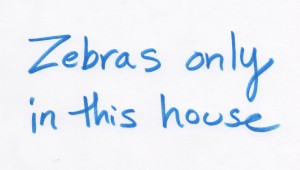 Pre-literacy is meaningful to kids when it’s relevant to their lives. A sign saying “Shh! Lucy’s animals are sleeping” is relevant to Lucy’s game. A homemade book with a child’s very own words (dictated to an adult) is meaningful and joyous. Nothing beats reading books aloud multiple times a day. There’s no agenda to make kids study the alphabet, like learning how to get dressed and learning how to behave, literacy is simply integrated into daily life.
Pre-literacy is meaningful to kids when it’s relevant to their lives. A sign saying “Shh! Lucy’s animals are sleeping” is relevant to Lucy’s game. A homemade book with a child’s very own words (dictated to an adult) is meaningful and joyous. Nothing beats reading books aloud multiple times a day. There’s no agenda to make kids study the alphabet, like learning how to get dressed and learning how to behave, literacy is simply integrated into daily life.
It’s important for kids to love stories and understand the power of words before they move on to true literacy.
And counting? Young kids can recite 1-2-3-4-5-6-7-8-9-10. That’s memory, not counting. True counting involves one-to-one correspondence, the mental concept that “two” means two of something. Kids develop one-to-one correspondence at different ages. Songs, stories and daily life reinforce these concepts already, and when the child is ready, she will learn them. Why waste her time drilling counting when she needs to be learning something else?
The President is calling for universal preschool, modeled after programs in Alabama where business people supported statewide preschool as a cost-effective method of generating a reliable, future workforce. These preschools have play, but it’s a heavy dose of teacher-directed play, the kind found in most public school classrooms (stack these blocks, play in this “learning center” now).
A high-quality preschool program looks radically different. It’s open-ended play, play directed by children, play that’s guided by adults trained in coaching emotions and conflict resolution. And no, it doesn’t teach the alphabet or counting.
I fear we are forgetting the “pre” and sending 4-year-olds directly to “school.”
What do you think belongs in PRE-school? What are your hopes and fears for national universal preschool?
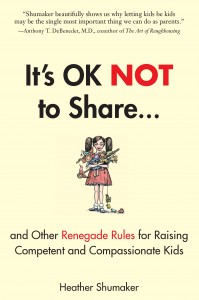 If you like these ideas, read more in my book:
If you like these ideas, read more in my book:
It's OK Not to Share...And Other Renegade Rules for Raising Competent and Compassionate Kids.
Free sample chapter and videos here.

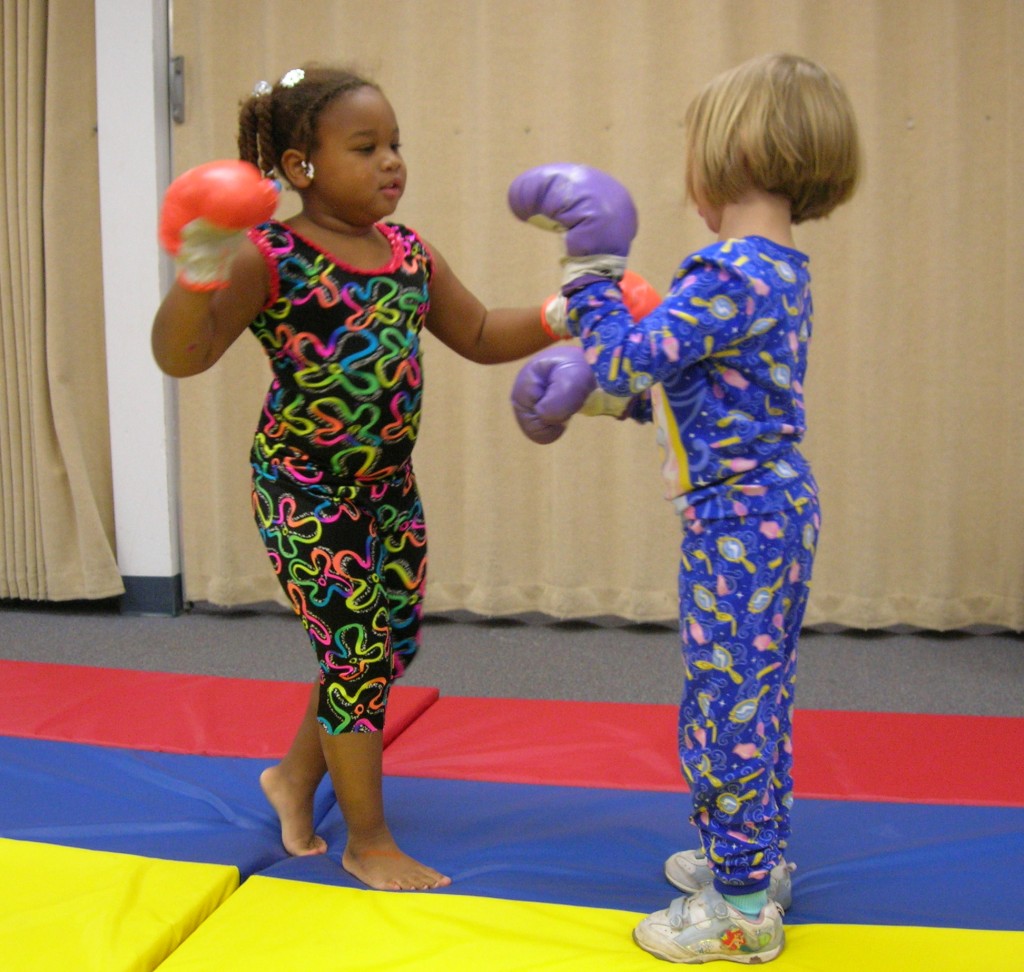
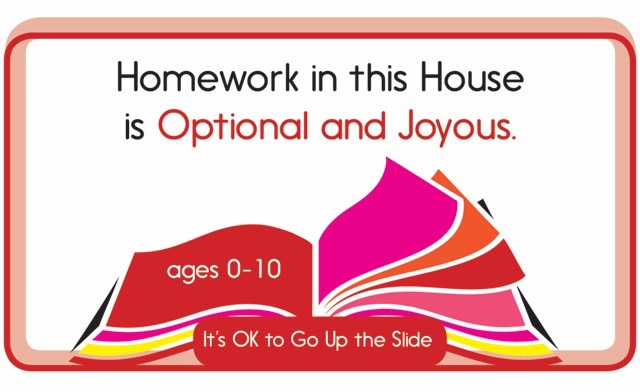
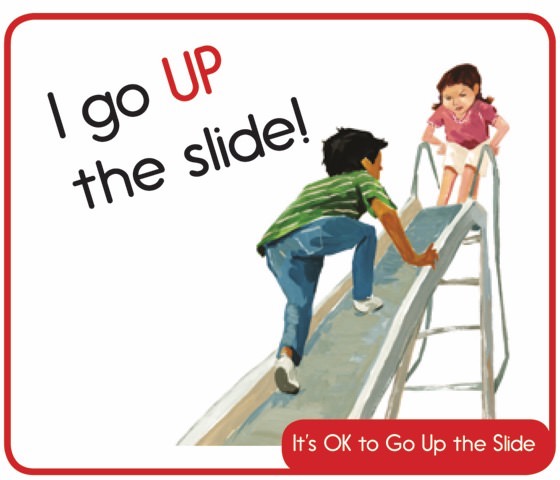
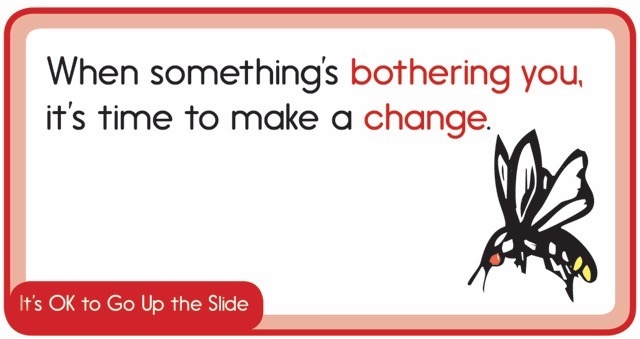
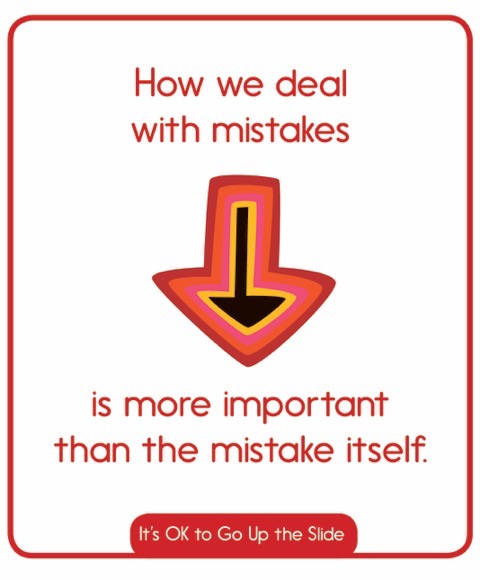
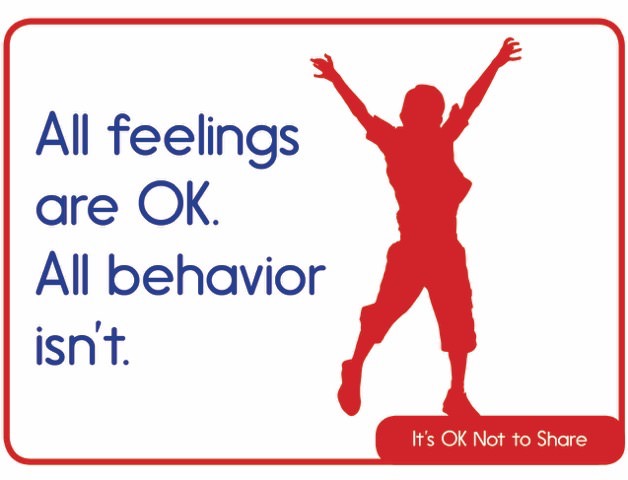
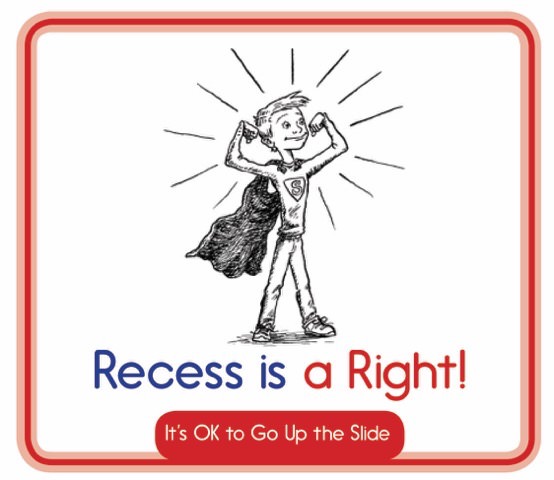
I feel like I have someone in my corner! I was having a debate with some folks about why I think the president's new pre-school directive is a bad idea. You have perfectly summed up my feelings on the matter. Bravo, and thank you.
You're welcome! It's hard to articulate sometimes. So much to learn at early ages, but "play" often gets manipulated to fit many agendas. You're not alone.
Thank goodness!! Bravo from a former SYC parent in Columbus, Ohio. :=)
Hello! And yes - as alumni of a true "play school" you know the tremendous value of a true, high-quality program.
Thank you! You are absolutely right! I have 6 children and I just read to them lots...they all learned to read and spell on their own without pre-k.
"Reading to them lots" - the most marvelous thing. Good for you! Kids of all ages love being read to, even after they learn to read.
Heather - I sure wish I'd known you when my son was little. But then again, you were about five years old! Great information as always, thank you for creating a space to share it.
Ah, yes, then I was living preschool! Glad you like visiting the site, Laurie. You're most welcome.
Oops! Don't get me started on this topic. I used to be a teacher and bought into the public education model lock, stock, and barrel. Thirty years later, I say the system is broke and unfixable unless the "public" in public education is scrapped and the entire education system is rethought.
What passes for education today is more like indoctrination into how to become a docile worker drone who relies on government to tell us what to do, how to think, how to behave, and that government has all the answers and will care for us from cradle to grave.
To me, the truly happy people in life are the ones who butted heads with conventional school wisdom and authority and went in their own direction. Think successful artists of all types, entrepreneurs, idea developers, creators.
I wholeheartedly endorse Heather's ideas for pre-school. Better yet would be a world where both parents had sufficient time to spend with their children so that pre-school effectively moved from a centralized building to each family's home and neighborhood. That way parents can experience the true joy of helping their young person develop into a "successful" adult.
The FEDERAL government is the absolute LAST entity that should be involved with children's education. STATE government, maybe, if only for organizational purposes. LOCAL government, better but still not perfect, because even small groups of children and their parents will have radically different needs and wants. PARENTS should be the first line of education. Not practical in current society, I concede, but what we should strive for in an ideal world.
I've probably said too much already. Good post, Heather. Keep fighting for what our children really need.
Chris
An interesting change of heart, Chris. Thanks very much for sharing your thoughts as a teacher and a former teacher. Sure is hard to know how to educate fellow human beings, isn't it?
That it is, Heather. I think the ideal teaching situation is one-on-one, with a mentor who is tuned in to the child's way of thinking and seeing the world. Of course, that's probably cost-prohibitive for most.
Second best is parents who actively interact with their children daily (home schooling or at least careful evaluation of what the child is learning and experiencing in school).
Mass market public school is the weakest option for helping each child reach their maximum potential. Some do fine there, but the "special kids" (Any way you want to define special) usually fall through the cracks.
We need to keep trying to get better at it. Education is the great equalizer.
Well said Chris. This has been the hardest thing for me in the public education system.
Great post again! Most of the things you mentioned would be good for kids until the graduate. As the get older, the activites may change somewhat based on age, but all children & young adults should have free time to play & explore during the day.
Thanks, Deidra. You're right - a lot of this can be extended for older ages - at least the underlying concepts.
I guess I wish there was balance. After teaching Kinder & 1st grade for 10 years....I began staying home with my first child and opened a preschool and childcare in my home. I have a bachelor's degree in Spanish and elementary education, as well as a master's degree in education with my endorsment in literacy instruction. When I taught in public school I always had "too much" play for most of my principals. They would ask why I needed playdough and house centers in kindergarten...they would question thier "academic" need, and what they will b learning. I would respectfully explain and encourage them to remember that this was early childhood education. I would point them to sources of excellent early childhood research and resources.
I have always wanted to teach in early childhood. It was hard finding a college program that would even cover early childhood in my area. I was sure that once I got into the early education "world" and out of public schools I would "fit in". But now I find I have "too much school" for preschool.
We have such an amazing time everyday. But we talk about letters and number all day. I find the kids curiosity limitless. They want to know about everything around them! We read, sing, dance,play, snuggle, write, learn our letters, build forts, dig in the sand, play in sensory bins, dress up...so much.
I guess what I hope is that we can all work together to encourage each other. With our diverse personalities and interests to walk on this journey together. That we can give each other what we give our student....love and encouragment to progress on this amazing journey of spending our lives enriching the live of children.
You're right, there is tremendous pressure on early childhood educators to defend play in the classrooms. They are in a tight spot with many principals. Good for you in finding the right spot for you to share your love for kids. Fantastic! Numbers and letters can be naturally integrated into kids' lives just as hugs, forts and food are. Our job is to keep everything relevant and age-appropriate. It's so easy to tip into adult agendas. Thanks so much for sharing your comment.
I just spent the last few days at the National Service-Learning Conference. One of the presenters did her dissertation on Service-Learning in pre-school. She found some beautiful results with helping to solidify the natural empathy that is pretty innate in toddlers ("Mama, don't cry."). Anyway, if I was going to add anything to your list for what should be in pre-school, it would be age-appropriate Service-Learning.
I think we have a problem with trying to advance our children too quickly. Make them grow up sooner and then they will grow farther, right? I don't think so. And I think it's a disservice to them to force them to abandon the amazing parts of thinking and being like a child.
Really great post. Thanks.
Thanks, Nichole. Being part of a community and helping others - I'm guessing this is the core of 'Service Learning" -- this kind of learning is certainly best done in a hands-on setting with plenty of time and room for practice. Thanks for your comment.
Thank you! I couldn't have said it better myself. I am continually concerned about the curriculum "push down" I see when visiting college students doing their preschool practicums. Well educated and well intentioned teachers often succumb to the pressures of the school, the parents, etc. We need to keep advocating to keep the pre in preschool! Well said!
Melanie - thanks for your comment. Is it the visiting college students bringing in more "push down?" Are they learning the academic curriculum part in their classes? Or do they arrive with a sense of importance about play and then change later because of pressure? I'm curious what's being taught in early childhood college classrooms.
Wonderful, wonderful post. My children are unschooled and my three-year-old is teaching herself to write because she treats it more like drawing. She knows how to count because we count change at the store, or she does a puzzle and asks to have the numbers named, or she counts teaspoons with me while making dinner. She works through most things on her own (til the crying starts) and learns from her own mistakes. She processes her emotions through play and pretend and later comes and talks to me about feelings she's had. She won't be going to school but if she were, this would be a perfect 'pre' experience to prepare her for it.
Didn't mean to make this about Logan 🙂 but I wanted to express that I really love what you're saying. I understand the need for preschool and I wish everyone was aware of the disparity in quality among them. Toddlers and children do not deserve to be treated as though their value lies in what they can contribute to the workforce. Thank you for the post! Play is the *work* of children and it's a message that needs more attention.
Kimberley
The Single Crunch
Love the examples you gave - writing and counting integrated into daily life. Yes - it's always beautiful to see a young child "writing" on paper. Enjoy your unschooling experience with your daughter.
Let's remove the 'school' altogether. Let's home educate and let's keep kids in their parents' care, or close family or friends whenever possible. This culture of 'preschool' is doing just that - sending them to a building of strange adults and same age children soon before they do it all over again for 13 years with strange adults and same age children. Having preschool turn into what it has was only a logical progression to the day care culture we have instituted. It's the adults and the work culture that needs to change, that needs to be thrown upside down, and shaped into the family centered community that it is supposed to be.
Thanks for your thoughts, and bravo - adult work culture is certainly out of pace with family and children's needs.
Given the need for day care (our family certainly relies on it) - it's good to consider the many quality in-home daycares where small numbers of children are cared for in a home setting. So different than institutional preschools. Home daycares may be hurt by the new push for preschools, too.
I agree pre-school should allow children to play and wonder and laugh and explore! But couldn't the best pre-school educator be right there in their own home? A stable home and a loving family provide a good foundation for learning, and yes, I know that, sadly, many children don't have that; I realize most women work and don't "stay home" with their children -- but if we are talking about what is best for children, let's affirm the importance of good parenting, complete with allowing children to have a childhood. Let's honor family life, and recognize the importance of fulfilling our obligations to one another. Let's turn some of our educational effort toward helping parents understand how to parent well. Let's keep pre-school as an option, not a requirement, and when a family chooses pre-school for their child, yes, by all means let's keep it a time of unstructured learning. Let's remember that play is the work of childhood.
Teaching parents, helping parents, supporting parents -- yes, yes. This is so vital to the national conversation. Even the most loving and stable homes could do with support when it comes to parenting. Thanks, Holly.
Thanks for that article. I agree wholeheartedly with what you say. I am in England and our pre school children come under a toddler curriculum called the early years foundation stage which has many bulletpoints of abilities that children are expected to do by a certain age. It is very robotic and assumes all children develop specific skills at the same time. My sister went to a parents evening for her 3 year old so and the teacher said her son is struggling recognizing numbers, my sister says he is only 3 and is hardly a priority at that age. Thanks again, all the best.
Sounds as if England the US are very similar in this -- unfortunately. Teachers are under a lot of pressure to conform to the standards. Kudos to your sister for standing up for her 3-year-old and all 3-year-olds everywhere!
Thank you for writing this article. I can't tell you how I felt when I read it; it was like you were inside my head and heart writing my thoughts and feelings. Ten years ago I resigned as Preschool Director of my local School District (in Sothern California) and started my own non-profit preschool program housed in a local Community Center. I am so happy to now be in a place where decisions can be made based on what's best for children and families without having to answer to a State Dept of Education. My staff and I have created a wonderful PRE school and we too are worried about the Feds ideas for Preschool education. My worry is it will only be the families with money who can choose how their young children are educated and everyone else will have to send their children where the education is free, and unfortunately dictated by non-early childhood educators and heaven forbid, politicians. I feel it is the children from low income families who will be hurt the most from this Universal Preschool debacle. All children need a play environment rich in language and creativity where critical thinking skills are encouraged and play that’s guided by adults trained in coaching emotions and conflict resolution. And no, our school does not drill the alphabet or counting, but it is highly praised by the Kindergarten teachers who get children from our school and see them as competant, creative, brilliant and skilled peace keeping individuals. Thank you again for your wonderfully written article!
Thank you, Harriet. I'm so glad I could express what's in your head and heart. Congratulations on creating a wonderful environment for young children to learn what's truly important. I'm not surprised at all that your graduates are considered competent, creative and brilliant!
Sounds as if you are a kindred spirit - you may be interested in my book "It's OK Not to Share...And Other Renegade Rules for Raising Competent and Compassionate Kids" https://www.heathershumaker.com/book.html - filled with lots of free play, emotions and conflict mediation ideas.